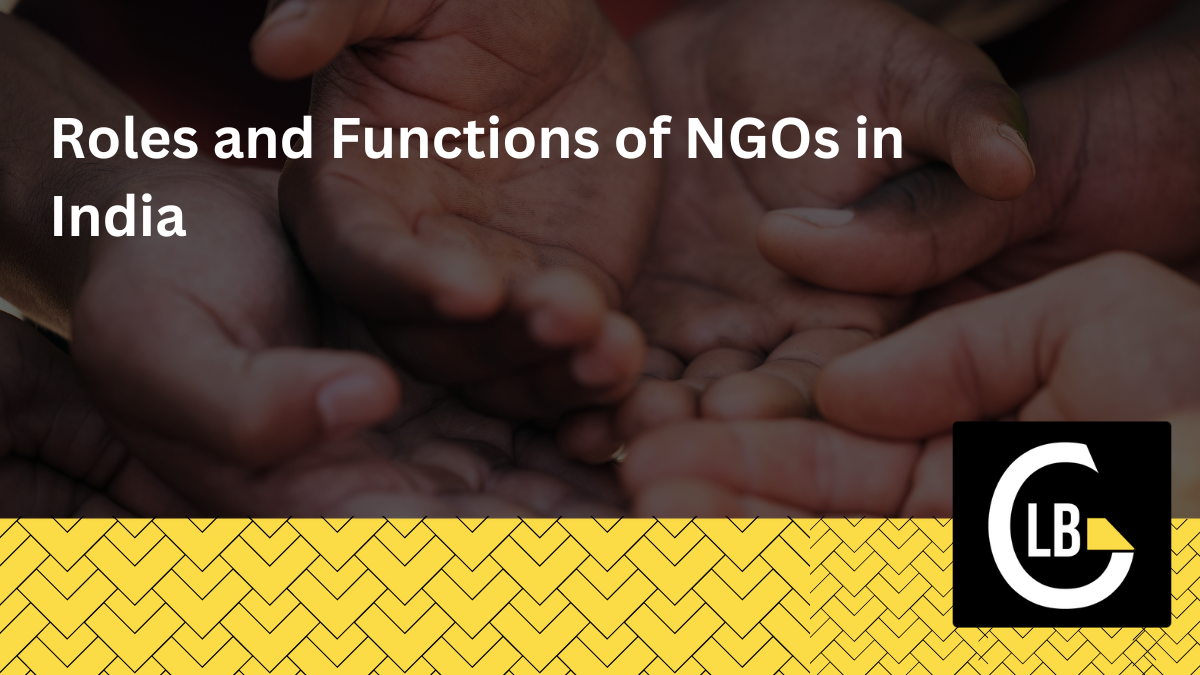Non-Governmental Organizations (NGOs) are a crucial part of India’s efforts to improve lives and address issues where government support may not fully reach. Whether providing support in rural areas, advocating for human rights, or stepping up during a crisis, NGOs in India contribute significantly to society. Let’s break down the various roles NGOs play and the impact they make.
1. Being a Voice for the Voiceless
NGOs often step up to represent those who may not have a platform to express their concerns. They raise awareness about issues affecting marginalized communities, environmental concerns, or social injustices. By organizing campaigns, workshops, or engaging with the media, NGOs amplify critical issues and push for societal change.
A well-known example is Amnesty International India, which focuses on human rights and raising awareness around issues such as freedom of expression and social justice.
2. Providing Essential Services
In many remote parts of India, people struggle to access basic services like education, healthcare, and clean water. NGOs bridge these gaps by providing crucial services that help improve the quality of life in underdeveloped areas. These services often complement government programs or fill in where services are lacking.
For instance, Pratham is an NGO that has made significant strides in improving educational opportunities for children, especially in rural and underserved communities.
3. Driving Development in Communities
NGOs also focus on sustainable development projects that bring long-term benefits to communities. These projects may include building schools, setting up vocational training centers, or supporting farmers with improved agricultural techniques. The goal is to create lasting improvements that help people become self-reliant.
SEWA (Self-Employed Women’s Association) is one organization that works on empowering women through training and financial support, allowing them to become economically independent.
4. Training and Empowering Locals
Rather than offering one-time solutions, many NGOs work to empower individuals by building their skills and capacities. By offering education and vocational training, they help people take charge of their own futures and improve their communities. This creates a long-term impact, as empowered individuals pass on their knowledge to others.
Organizations like Teach For India help by providing not just education to children but also by training teachers, improving the overall education system in underserved regions.
5. Disaster Relief and Recovery
When natural disasters like floods, earthquakes, or cyclones strike, NGOs are often the first to respond. They provide emergency food, shelter, and medical care. Beyond the immediate relief, NGOs play a critical role in long-term recovery, helping affected communities rebuild their lives and infrastructure.
The Goonj Foundation is a key player in disaster relief, helping communities recover and rebuild after natural calamities through ongoing support and resources.
6. Shaping Policy Through Research
Many NGOs conduct in-depth research on social, environmental, and economic issues. This research provides valuable data and insights that can influence government policies and laws. By staying engaged with policymakers, NGOs help ensure that the government’s decisions reflect the needs and interests of vulnerable communities.
For instance, the Centre for Science and Environment (CSE) contributes to policy development by providing research and insights on environmental issues like pollution and climate change.
7. Defending Human Rights
Some NGOs dedicate themselves entirely to defending human rights, fighting issues like child labor, human trafficking, or discrimination. They provide support to vulnerable populations and work to ensure that basic rights are protected.
CRY (Child Rights and You) is one such organization that works tirelessly to ensure that children across India have access to education, safety, and opportunities for a better future.
8. Protecting Nature and the Environment
As environmental challenges become more pressing, NGOs are stepping up efforts to protect natural resources, wildlife, and ecosystems. They raise awareness about pollution, conservation, and sustainable living practices, encouraging individuals and businesses to act responsibly.
The Bombay Natural History Society (BNHS) is one example of an NGO dedicated to the protection of biodiversity and the promotion of environmental conservation in India.
The Importance of NGOs in India
NGOs are essential to India’s progress, stepping in where government efforts might not be sufficient. By offering both immediate relief and long-term solutions, they play a critical role in improving lives, protecting the environment, and supporting vulnerable communities. From disaster relief to advocating for policy changes, NGOs in India contribute to creating a more equitable, sustainable, and just society.
With millions of NGOs operating across the country, they help ensure that India’s most pressing issues are addressed and that no one is left behind. Their efforts are vital in helping communities grow stronger and more self-sufficient.
